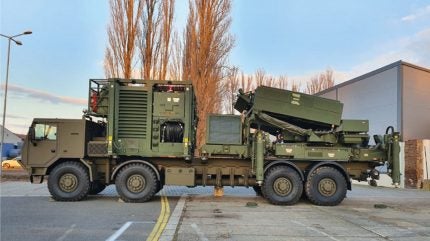
Israel Aerospace Industries (IAI) has solidified a partnership with the Czech Ministry of Defence, sealing a 20-year contract to safeguard the longevity of the country’s Mission Multirole Radar (MMR) systems.
In June 2023, Israel Aerospace Industries successfully tested MMR radars for the Czech Army.
The MMR radar provides aerial situational awareness to safeguard airspace integrity and protect against emerging threats. More than 200 MMR radar systems are deployed worldwide, including integration into air defence systems like Barak, David Sling, and Iron Dome.
Eyal Shapira, vice president and general manager of the IAI ELTA air defence and naval systems division, expressed confidence in the partnership’s potential. “We are proud of the important degree of cooperation achieved with local companies: the knowledge- and technology-sharing will help both our countries and provide more precise aerial surveillance.
The advanced Czech Republic radars can simultaneously identify and classify hundreds of targets, detect unmanned platforms, missile barrages, rockets, and other new threats in the arena,” remarked Shapira.
The Czech Republic is increasing its defence budget in response to escalating European security concerns. With a projected budget of $7.7bn (Kč181.7bn) by 2028, as per GlobalData’s intelligence on the Czech Republic defence market.
The capabilities of the MMR radar extend beyond aerial surveillance, encompassing a range of functions, including air defence against aircraft, unmanned aerial vehicles (UAVs), drones, artillery ranging, and identification of enemy threats. It enables simultaneous execution of multiple missions, fortifying the defence infrastructure against many potential threats.
Moreover, integrating local Czech companies RETIA and VTU into the contractual framework shows a commitment to fostering industrial cooperation and knowledge-sharing, bolstering both countries’ defence ecosystems. This collaborative effort strengthens bilateral ties and paves the way for future advancements in defence technology.
The Israeli defence industry relies heavily on exports, with only 30% of production consumed domestically. The ongoing conflict may impact exports if prolonged. Despite calls to suspend ties with Israel, key markets like India and Azerbaijan maintain pragmatic engagements. However, potential risks include losing opportunities in other markets due to political pressure and criticism of Israeli actions, especially as civilian casualties in Palestine rise.




